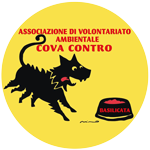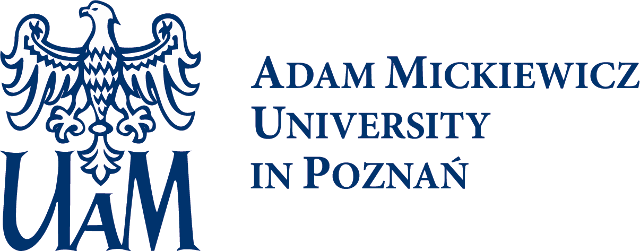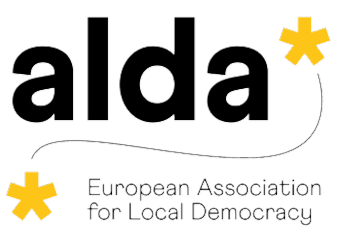Established in 1952 as the International Institute of Social Studies (ISS) by Dutch universities and the Netherlands Ministry of Education, the ISS is a graduate school of policy-oriented critical social science. It brings together students and teachers from the Global South and the North in a European environment. ISS does research, teaching and public service in the field of development studies and international cooperation. This transdisciplinary field of study seeks to understand phenomena of underdevelopment, development and change, with special reference to low-income countries. ISS located in The Hague: “The World’s Legal Capital”. Since 2009 ISS has been part of Erasmus University Rotterdam. Research at ISS focuses on development studies.




Cova Contro was born in 2013 as an unrecognized volunteer organization, based in Policoro in the province of Matera, with the sole purpose of studying and disseminating the implications of regional energy/oil issues: impacts, regulatory norms, legislative limitations, participation, and transparency in decision-making processes. Since 2015, the commitment to citizen science has begun, using social media to raise funds in order to carry out grassroots, private analyses on some environmental anomalies in the Basilicata region. Thanks to the significant results achieved with citizen science, we have expanded to the implementation of new technologies: satellites, drones, mobile air quality meters for indoor and outdoor environments, scientific collaborations with public and private entities in Italy and abroad. Today we engage in: environmental outreach and investigation (as well as other sectors), combating corruption and conflicts of interest, supporting the Aarhus Convention, consumer protection and food analysis, citizen science, environmental consulting for both public and private sectors, pollution victim support, and upholding press freedom.
Social IT is an innovative SME developing cutting-edge ICT solutions. Our mission is to implement innovative and flexible technology solutions, recognising the importance of the users and their needs. Our core competencies are the development of customised software, cloud and web application, and system integration. We have extensive experience in European projects, which has enabled us to continue developing expertise through intensive research and innovation activities and to develop ground-breaking ICT tools in support of fragile people (e.g., with intellectual disabilities, affected by autism, elderly with Alzheimer). Thanks to our hands-on experience, we offer consulting services for planning and accessing European and national funds.




Since its foundation in 1450, the University of Barcelona (UB) has been committed to providing a public service for higher education, with the highest level of quality, encompassing study, teaching, research, and effective knowledge transfer management. The values of the UB, include freedom, democracy, justice, equality, and solidarity, and are embraced by the entire university community. The University is comprised of 16 faculties, 10 affiliated centres and a doctoral school through which all its academic programmes are run. It also has a Science Park, a Science and Technology Centre service, 17 research institutes, over 5,000 research groups, nearly 6,000 researchers and more than 40,000 students. The UB team, led by Dr. Orta-Martínez and Dr. Muñoz-Garcia, demonstrates proven expertise in environmental monitoring of water quality and community-based environmental monitoring systems, which are key aspects to achieving the objectives of the ERICA. Expertise in environmental chemistry and forensics, technical legislation regarding permissible levels of the relevant pollutants, and understanding their toxicological profiles are crucial factors in identifying the most relevant pollutants posing environmental and health risks. The UB team also possesses extensive experience in designing and implementing community-based environmental monitoring systems. Specifically, Dr. Orta-Martínez and his team have contributed to establishing several near real-time environmental monitoring systems in the Ecuadorian and Peruvian Amazon.
Adam Mickiewicz University in Poznań, founded in 1919, is the major academic institution in Poznań and one of the top Polish universities. The University is a center of academic excellence, where research and teaching are mutually sustaining, and where the context within which research is conducted and knowledge is sought and applied is international as much as regional and national. The University recognizes its role as a strategic partner in Central Europe, and therefore aspires to contribute to the region’s economic growth, social development and environmental sustainability. The Institute of Anthropology and Ethnology has been involved in various research projects related to energy policy and social studies of technologies. This department is also involved in organizing workshops and conferences related to issues of energy development and environmental politics as well publishing about issues related to energy and social studies of technology. Members of the Adam Mickiewicz University team also belong to the AMU Research Center for Energy and Environmental Challenges – a platform to foster interdisciplinary scholarship and collaboration on environmental issues, energy transformation and transport sectors.




Source International is an Italian organization with over ten years of fieldwork experience supporting communities around the world in environmental monitoring of air, water, soil, food quality and biomonitoring in critical areas. Composed of a team of environmental scientists and lawyers, it collects scientific evidence of the environmental, health and social impacts associated with industrial activities such as oil and gas, mining, agribusiness and any human activity with strong impacts on the environment and local communities. It conducts training activities for communities, associations and institutions on how to manage and monitor natural resources. It carries out independent environmental studies on water, soil, air, sediment, food and biological samples such as urine and hair for epidemiological research.
ALDA – European Association for Local Democracy, is a French-registered association dedicated to the promotion of good governance and citizen participation at the local level in the European Union, its neighbourhood and beyond. ALDA is a key stakeholder in the field of local democracy, active citizenship, and cooperation between local authorities and civil society in Europe, its neighbourhood, and all around the World, mainly acting through participative methods and decentralised cooperation. As a core element, ALDA supports citizens and groups of citizens in their initiatives aimed at improving their local context, building bridges with local authorities in order to make this change real.
ALDA was established in 1999 at the initiative of the Council of Europe to coordinate and support the network of Local Democracy Agencies (LDAs), which are self- sustainable, locally registered NGOs acting as promoters of good governance and local self-government, with which ALDA collaborates in many activities. ALDA is a membership-based organisation gathering today more than 350 members, including local authorities, associations of local authorities, and civil society organisations, coming from more than 45 countries in the enlarged Europe. ALDA is funded through membership fees, as well as project funding from the European Commission, the Council of Europe and other public and private donors.













